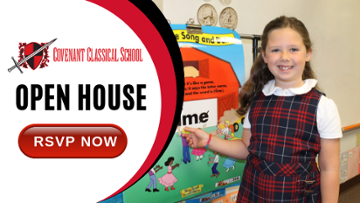Two five-year-olds were happily collaborating during Art class when suddenly one raised her hand. The teacher called on her. The little one’s face crumpled, and she tearfully said, “She’s being mean to me.” Wait. What? They were playing together just moments ago! The teacher wisely diffused the situation, saying, “Well, we need to remember to be kind to each other.” And within seconds—literally—the two began giggling and playing together again.
I wonder what story, if any, will come home in the afternoon. Will it be the whole story? Or just partial? Will there be an eyewitness who only saw parts? Or only from their perspective? Relationships in elementary school are so tricky. And we parents have a hard time dissecting the true events. How can we help? Let’s use the word LISTEN to give tips.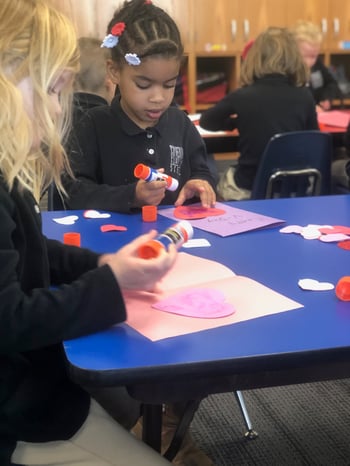
Getting to the Bottom of It
L: Lead your listening with questions: “What happened?” “What was your role?” “Why did you get involved?” “What triggered your response?” Here’s a great one from author and speaker Paul Tripp: “What were you hoping to achieve when you—?” (It’s the updated and more gracious way of saying, “What were you thinking?" 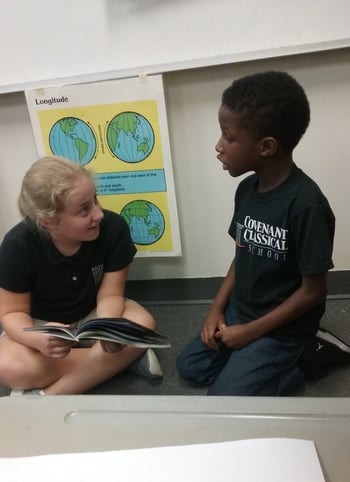
Child-Sized Solutions
I: Intervene sparingly, meaning don’t talk to the other child yourself or involve other parents unless there is bodily harm. If your child comes home with a black eye, it’s time to make a phone call. Otherwise, it’s best to coach your children to solve their own problems. It’s tempting to jump in, but remember, our solutions, although wise through years of experience, are often adult-sized. A young child needs tools that are pint-sized for their use. Many of their complaints sound extreme, like, “Everyone is being mean to me,” when what they mean is, “Suzie acted like she didn’t want to be partners with me.” We must resist the temptation to overreact. Understanding child development helps with this.
Give Some Space
S: Space. I did a chemistry lab with my 6th graders. They observed that two chemicals which have no reaction to each other practically explode when combined with another! Much to be learned about human nature in a chemistry experiment, eh? Sometimes the best advice to our children is to distance themselves from a classmate who brings out a “chemical” reaction. Furthermore, parents can’t do anything about times spent together in the classroom, but you sure have control on the rest. You may exercise your authority in this case and separate your child from a potentially toxic relationship.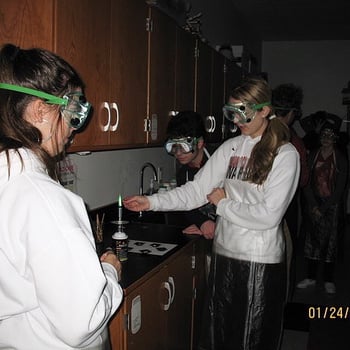
Children Need Time
T: Time. The younger the child, the faster the descent and likewise, the faster the recovery. One minute, they are BFF’s, the next, “I am not your friend anymore.” Upon a bit of investigation, it turns out one was hogging the crayons. Or jumped ahead in the line for the slide. Give your child time to work things out with friends.
Conflict Resolution Needs Perspective
E: Expect the after-school let-down. In fact, it’s best to take stories from the first 30 minutes after school with a grain of salt. Children are hungry. Children are tired. They have put out extreme effort to sit up straight, raise their hand, and walk quietly in the hall. Those for whom this process is excruciating tend to explode. Molehills become mountains. Minor irritations become outright offenses. Perfectly understandable, if you think about it. Filtering those stories through this lens prevents overreaction. You might consider having them give you two positives for every negative. You’re not mad at them; you are just trying to help realign perspective.
Resolution Involve the Golden Rule
N: New ways of handling conflict. We had a “Good Neighbor” chapel and gave some tools to our young students. Tools like word choices, such as “You may be right” and “What did you mean when you . . .?” We helped our students learn how to express more specifically what they feel: “I didn’t like it when you kept telling me what to do.” We advised older elementary kids to write down things they admired or appreciated in another person and then spend more time concentrating on those things than on the things that annoy. Perhaps God is deliberately working to smooth some rough edges in both parties. Another tool is, frankly, prayer. Praying for supernatural love for a classmate who tends to get on one’s nerves opens up avenues for the Holy Spirit’s work. Also in that chapel, we helped them gain realistic expectations: you cannot change another person’s behavior. You can only control your own.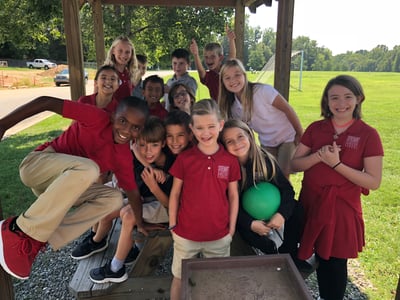 Final advice you can give your child: “accept these facts of life: classmates (and siblings!) are God’s gift to you. He chose them to be in your life—to shape you and to refine you. Now, let’s go get an afternoon snack and play some hopscotch.”
Final advice you can give your child: “accept these facts of life: classmates (and siblings!) are God’s gift to you. He chose them to be in your life—to shape you and to refine you. Now, let’s go get an afternoon snack and play some hopscotch.”


